Completed evaluations
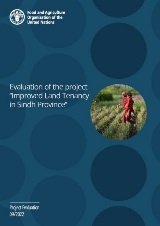
Evaluation of the project "Improved Land Tenancy in Sindh Province"
05/10/2022
The project aims at contributing to responsible land and water governance in Sindh Province and helping its government and land users to address challenges they face regarding land tenure, food security and natural resources management. The evaluation found that the project generated benefits in the domain of civic governance but not in the domain of official governance.
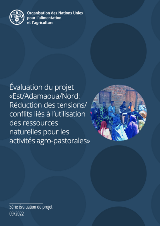
Evaluation of the project “East/Adamaoua/North: Reduction of tensions/conflicts related to the use of natural resources for agro-pastoral activities”
05/10/2022
The project was implemented by FAO and the International Organization for Migration (IOM) in coordination with the Government of Cameroon, in the border regions with the Central African Republic, Chad and Nigeria. The project aimed to reduce conflicts related to transhumance and agro-pastoral practices in Cameroon. (French only)
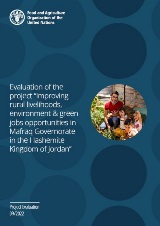
Evaluation of the project “Improving rural livelihoods, environment & green jobs opportunities in Mafraq Governorate in the Hashemite Kingdom of Jordan”
05/10/2022
The evaluation looked into accountability issues but also sought to document lessons, identify good practices and challenges that can inform the design and implementation of follow-up or similar projects in innovative waste disposal techniques and green jobs in order to achieve positive economic, environmental and social outcomes.
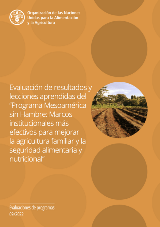
Evaluation of results and lessons learned from the "Hunger-Free Mesoamerica Programme: More effective institutional frameworks to improve family farming and food and nutritional security"
29/09/2022
The Hunger-Free Mesoamerica Program (MSH) is a regional cooperation initiative, with a total budget of 15 million dollars and a duration cycle of eight years (2015-2022). The evaluation identifies numerous experiences with learning potential, among which the complementarity with other FAO interventions and other donors, the regional modeling of sectoral policy instruments, SSTC experiences among the participating countries stand out. (Spanish only)
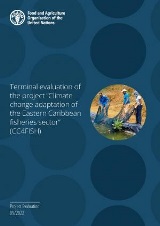
Terminal evaluation of the project “Climate change adaptation of the Eastern Caribbean fisheries sector” (CC4FISH)
09/09/2022
This report presents the findings of the terminal evaluation of the regional project “Climate change adaptation of the Eastern Caribbean fisheries sector”. The project was financed by the Global Environment Facility (GEF) and implemented and co-executed by FAO and regional partners from January 2017 to June 2022.
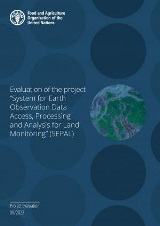
Evaluation of the project "System for Earth Observation Data Access, Processing and Analysis for Land Monitoring" (SEPAL)
30/08/2022
SEPAL is a cloud-based computing platform for fast access and processing of remotely sensed data sources. It is designed to assist national forest monitoring and reporting for the Reducing Emissions from Deforestation and Forest Degradation, Forest Conservation, Sustainable Management of Forests and Enhancement of Carbon Stocks in Developing Countries (REDD+) mechanism.
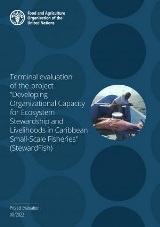
Terminal evaluation of the project “Developing Organizational Capacity for Ecosystem Stewardship and Livelihoods in Caribbean Small-Scale Fisheries" (StewardFish)
18/08/2022
The project aimed to support the implementation of the Caribbean and North Brazil Shelf Large Marine Ecosystems initiatives in seven countries of the Caribbean (Antigua and Barbuda, Barbados, Belize, Guyana, Jamaica, Saint Lucia, St. Vincent and the Grenadines) and implemented by five Caribbean regional entities.
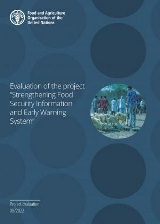
Evaluation of the project "Strengthening Food Security Information and Early Warning System"
18/08/2022
The overall objective of the project was to increase systemic resilience to food crisis and climate change as well as improve food security and nutrition governance for decision-making at the national- and governorate-levels.

Evaluation of the project "Livestock Environmental Assessment and Performance (LEAP) Partnership"
05/07/2022
The evaluation of the project “Livestock Environmental Assessment and Performance (LEAP) Partnership” covered the three phases of the LEAP Partnership (2012–2021). The evaluation found that the project responded to an existing demand to advance towards a science-based benchmarking of the environmental performance of the livestock sector.
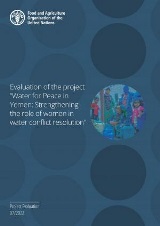
Evaluation of the project “Water for Peace in Yemen: Strengthening the role of women in water conflict resolution”
05/07/2022
The ‘Water for Peace in Yemen’ project aimed at contributing to the mitigation of water-based conflicts that have affected agriculture, with the inclusion of women as conflict-resolution agents.
